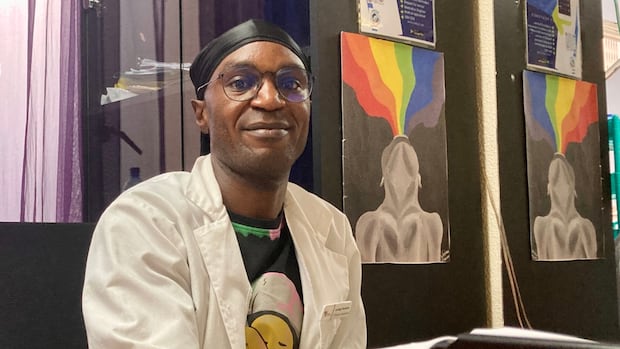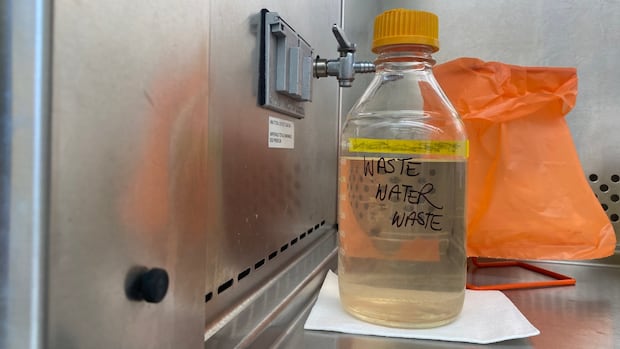A family from Langford, B.C., hoping to extend the life of their little girl, who has a rare disease, has been rejected again for coverage of medication that costs about $1 million a year.
Charleigh Pollock, 9, suffers from neuronal ceroid lipofuscinosis type 2, also known as CLN2 or Batten disease, a rare and terminal genetic disorder that causes multiple seizures every day, eventually causing brain damage.
Pollock’s mother, Jori Fales, says that she’s “disgusted” with the decision not to renew the coverage.
Fales sobs in a social media video, saying that there’s been a “complete disregard” for the life of her nine-year-old daughter, who suffers from Batten disease.
Fales posted the video moments after B.C. Health Minister Josie Osborne announced there would be no change to an expert committee’s decision that the drug, Brineura, is no longer helping slow the progress of Pollock’s disease.
Pollock’s name became known in 2019 when the province announced it would be covering the cost of the $1 million-per-year medication, which is given through an infusion of fluid to the brain to slow the progression of CLN2.
Funding for the drug was approved when Pollock was three years old. She is the only person in B.C. with the disease, which has no cure.
But Osborne said once a patient has declined in their motor and language functions by a certain amount, Brineura no longer slows the progression of CLN2.
Osborne says in a statement that she knows the outcome of the review process is not what the family of Charleigh Pollock wanted.
She says she met with Pollock’s parents last week to accept further information about Batten disease that they said hadn’t been considered by the B.C. rare diseases expert committee, which first recommended funding for the girl’s medicine be stopped.
But the statement says that information and much more was considered by the committee, and the decision remains that the drug, Brineura, is no longer helping slow the progress of the girl’s disease.
It says that cost was not considered, and all provinces rely on clinical criteria recommended by Canada’s Drug Agency.
On The Coast12:32Why B.C. stopped funding a $1M drug for a girl with a terminal condition
A Vancouver Island family has been left heartbroken after receiving news that their little girl, Charleigh Pollock, will no longer be receiving treatment from the B.C. government for a rare genetic disease. Head of the Batten Disease Global Research Initiative, Ineka Whiteman, breaks down the evidence behind the decision and why she thinks it sets a dangerous precedent for other children around the world.
B.C. is not the only jurisdiction grappling with the issue, the statement says, noting that the United Kingdom announced it would no longer provide coverage for Brineura for future Batten disease patients due to the limited evidence of its long-term effectiveness.
“This has been one of the most challenging issues that I have worked on since becoming health minister, and I take seriously my role to ensure that B.C. has drug review processes that are independent, evidence-based and treat people equally,” Osborne said in the statement.
The minister said she has been made aware of funds that have been raised independently that could be used to purchase the drug privately, and that Island Health has been in contact with the family to discuss that option.
“Going forward, the ministry will do everything we can to support them and support the team, particularly as Charleigh’s family moves forward with their decision and whether they want to access treatment that they will pay for privately,” Osborne said.






